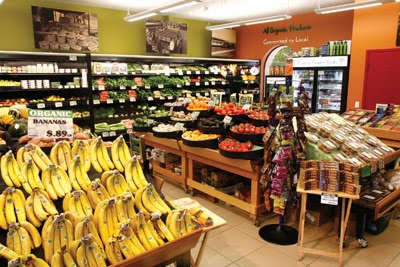Focus on Foodies

@font-face { font-family: “Arial”; }@font-face { font-family: “Cambria”; }p.MsoNormal, li.MsoNormal, div.MsoNormal { margin: 0in 0in 10pt; font-size: 12pt; font-family: “Times New Roman”; }div.Section1 { page: Section1; }
The term “foodie” is thrown around amongst food lovers everywhere. The Organic Trade Association notes that consumers who shop organic are also more likely to be adventurous cooks, gourmands, or more popularly termed as “foodies.” A foodie is defined as an epicure, or a person devoted to refined food and drink. Most of us have an inner foodie that yearns for quality food that tantalize our taste buds, and true foodies know that in order to make quality cuisine, you must start with quality ingredients.
This provides opportunities for unique cross merchandising and live cooking and sampling demonstrations. There are many ways you can demonstrate bananas as an ingredient for adventurous eaters. Here are a few:
• Cross merchandise GROW bananas with steel cut oats, dried fruit and pure maple syrup for a healthy breakfast option
• Post this recipe next to the fresh fish counter and display some bananas nearby
• During the summer, display bananas next to organic smoothie ingredients or natural supplements
• Host a cooking demonstration using melted organic dark chocolate mixed with cinnamon and organic cream. Dip toothpicked GROW bananas into the chocolate and offer to customers
How Will Disaster in Japan Affect Produce?

p.MsoNormal, li.MsoNormal, div.MsoNormal { margin: 0in 0in 0.0001pt; font-size: 12pt; font-family: “Times New Roman”; }div.Section1 { page: Section1; }
Organic Demand on the Rise

@font-face { font-family: “Calibri”; }@font-face { font-family: “Cambria”; }@font-face { font-family: “Gill Sans”; }p.MsoNormal, li.MsoNormal, div.MsoNormal { margin: 0in 0in 10pt; font-size: 12pt; font-family: “Times New Roman”; }div.Section1 { page: Section1; Organic foods are everywhere. More and more people are learning the benefits of an organic diet, and because of this, consumer demand has been steadily increasing by an average of 20% each year since 2007. And it sounds like organic isn’t just a passing trend to consumers: Demand is growing so fast that some organic goods are outstripping domestic supplies.
 Organic farming is in some ways more complex than conventional farming. It takes at least three years to convert to USDA Organic standards if chemicals have previously been used in a property. Organics Unlimited has always been an organic grower and has worked with many small growers to help them in the conversion process. Add social responsibility to organic, and you are providing produce for your customer that satisfies them on many levels.
Organic farming is in some ways more complex than conventional farming. It takes at least three years to convert to USDA Organic standards if chemicals have previously been used in a property. Organics Unlimited has always been an organic grower and has worked with many small growers to help them in the conversion process. Add social responsibility to organic, and you are providing produce for your customer that satisfies them on many levels.